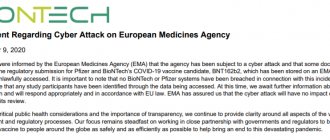Accusations of taking a bribe can be brought against almost any person who holds a certain position: an official, the head of a state-owned enterprise, a deputy, etc. As for giving a bribe (and this is also a criminal offense), then the circle of people is even wider - everyone without exception can be accused . In this case, the person can be immediately detained and held in custody until trial. Obviously, such a development of events is not the most pleasant, so you need to know how to protect your interests and how to behave in such situations. In this article we will tell you what a person should do first if he is detained for a bribe, what liability he faces, and how a lawyer can help in such circumstances.
What are the criminal penalties for bribery?
The Criminal Code of the Russian Federation provides for fairly serious penalties for corrupt practices. These include giving a bribe, receiving it, as well as mediation between an official and the person who is trying to bribe him. Here is the criminal liability for bribery provided for by Russian legislation:
- receiving a bribe (Article 290 of the Criminal Code of the Russian Federation) - the punishment directly depends on the amount of the bribe and can range from a suspended sentence of imprisonment to 15 years in prison. Also, the severity of sanctions is influenced by the position of the accused, public resonance, action as part of an organized group, the amount of damage to state property and the image of the country, cases of recidivism (if such crimes are not committed for the first time) and other factors. In addition to imprisonment, the perpetrator may be fined substantial sums (usually the amount of the fine is 10-20 times the amount of the unlawful benefit received), and he may also be banned from certain positions and activities in the future (for example, it is almost always prohibited in further hold high government positions);
- giving a bribe (Article 291 of the Criminal Code of the Russian Federation) - as in the case of receiving, the transfer of unlawful benefits (bribery) of a civil servant is punishable depending on the specific amount of the bribe - the higher it is, the more severe the sanctions will be. In the case of a minor bribe, imprisonment can be replaced by a suspended sentence of 1-3 years, but if the amount of illegal benefit is considered significant, large or especially large, the perpetrator can receive up to 12 years behind bars. Also, the severity of the punishment is influenced by the presence of similar actions in the past, participation in a criminal group, damage to the state, etc. Together with or without imprisonment, the bribe giver may be fined (10-30 times the bribe amount), and he may also be prohibited from holding positions. certain positions;
- mediation in the transfer of a bribe (Article 291.1 of the Criminal Code of the Russian Federation) - relatively recently, punishment was also introduced into the Criminal Code for persons who contributed to the commission of a corruption crime. Usually it is through them, and not directly, that money is transferred, and the necessary documents are also issued in exchange for a bribe. The punishment for the perpetrators, although more lenient, is still quite severe: imprisonment for up to 6 years (if we are talking about a bribe on a large or especially large scale, if the crime was committed by a group of people or serious damage was caused to the interests of the state). In addition, the culprit may be fined 10-20 times the amount of the bribe, and additional restrictions may be applied to him in the form of prohibitions on certain activities.
You also need to know what constitutes a bribe from a legal point of view. We are not just talking about money, the material benefit can be anything: securities, precious metals, services, various goods, etc. In exchange for an unlawful benefit, the bribe-taker must provide the bribe-giver with certain services, perform actions or fail to act contrary to his official duties (i.e. , there must be a connection between bribery and certain advantages) - this is what gives grounds for criminal liability for giving a bribe. Bribery as a crime is only possible in relation to a government official; similar actions in business are called commercial bribery and are punishable under other articles.
Commentary to Art. 291 Criminal Code
1. The elements of this crime are related to the corresponding elements of bribery (Article 290 of the Criminal Code).
2. The objective side of giving a bribe involves alternatively possible options: a) giving a bribe to an official personally; b) transfer of a bribe to relatives or friends of an official with his consent or if he did not object to this; c) transfer of a bribe to an intermediary with subsequent transfer of the bribe to an official, his relatives or friends; d) transfer of a bribe to any other individual or legal entity at the direction of an official.
3. Giving a bribe is considered a completed crime from the moment the recipient (an official, his relatives or friends, other persons) accepts at least part of the transferred values; other options for completing the crime are disclosed in paragraphs 10 - 11 of the Resolution of the Plenum of the Supreme Court of the Russian Federation dated July 9, 2013 No. 24. If the transfer of a bribe did not take place for reasons beyond the control of the bribe giver (for example, the person refused to accept the bribe or the intermediary was unable to transfer it), the act constitutes an attempt to give a bribe (clause 12 of the Resolution of the Plenum of the Supreme Court of the Russian Federation dated July 9, 2013 city N 24).
4. The qualifying features of the crime (parts 2 - 5) substantially coincide with the corresponding features of Art. 290 CC.
5. Note to Art. 291 of the Criminal Code allows a person who gave a bribe to be released from criminal liability if he meets two conditions: a) actively contributed to the disclosure and (or) investigation of a crime; b) alternatively, either there was extortion of a bribe by an official or the person, after committing a crime, voluntarily reported giving a bribe to the body that has the right to initiate a criminal case (see also paragraphs 29 - 30 of the Resolution of the Plenum of the Supreme Court of the Russian Federation of July 9, 2013 N 24).
What to do if you are accused of bribery?
If you or someone you know is caught taking a bribe, you need to put all your efforts into either proving your innocence, or, if this is impossible, easing possible sanctions as much as possible. Here is a list of things that can help in such a situation:
- Enlist the help of an experienced attorney. Even if you are completely innocent, you still have to prove it, and it will be very difficult to do it yourself. If an experienced criminal bribery lawyer immediately gets down to business, he will be able to understand the current situation and offer the optimal strategy of action.
- If possible, deny in every possible way the very fact of deliberately receiving or giving a bribe. For example, a bribe-taker may insist that it was a deliberate provocation on the part of ill-wishers; a bribe-giver, on the contrary, may talk about extortion on the part of an official. If the investigation does not have clear evidence of guilt, the version can be accepted as working, which will significantly reduce the severity of the punishment.
- Try to find evidence of your innocence. Good evidence can be an alibi, the absence of motives for committing a crime, the inability to carry out sane actions in principle (for example, due to lack of necessary authority), etc. Remember that often the evidence base in corruption cases consists of the testimony of witnesses and, first of all, accused (unless, of course, law enforcement agencies caught you red-handed), so do not make the police’s job easier and do not confess, especially if you are not guilty of the offense.
- If it is not possible to prove non-involvement, cooperation with the investigation may be a fairly winning strategy. In exchange for a sincere confession, imprisonment may be replaced by a fine or probation, especially if such actions are committed for the first time and the accused has not previously had problems with the law.
In any case, every action must be coordinated with a lawyer, because any wrong step and punishment will be inevitable.
Conclusion
Charges of bribery are quite common, so you need to know how to act in situations where you are suspected of such a crime. The first step to protect your interests is the services of a competent criminal lawyer who can provide all the necessary assistance.
Provocation of a bribe, incitement and falsification of the results of the operational investigation. Lawyer's recommendations
According to Article 5 of the Federal Law of August 12, 1995 No. 144-FZ “On Operational Investigative Activities”, bodies (officials) carrying out operational investigative activities are prohibited from inciting, inducing, inducing in direct or indirect form to commit illegal actions (provocation) , as well as falsify the results of operational search activities (hereinafter referred to as ORM). However, practice knows examples when violations of the law were committed in relation to persons brought to criminal liability in cases of bribery (Article 290 and Article 291.1 of the Criminal Code of the Russian Federation) - inflammatory actions were committed, provocations were arranged and the results of the operational investigation were falsified.
Examples of incitement and provocation of a bribe.
Let's look at some examples from judicial practice that contain signs of incitement and provocation of a bribe, as well as falsification of the results of operational investigations.
1. The briber is an agent of law enforcement agencies. The approach to the official is carried out through mutual acquaintances and (or) by positioning the agent as a large out-of-town businessman, whose “help” from the official will bring material benefits to the latter. During repeated conversations, the agent convinces the official to accept the bribe, and when it is handed over, he is detained. In this situation, the official’s intention to take a bribe was formed not independently, but under the influence of an agent. If it were not for the latter’s inciting actions, the bribe would not have taken place. In the above example, receiving a bribe does not constitute a crime and the bribe-taker is subject to release from liability.
2. The official is given a case with documents. But instead of documents it contains money. Upon receipt of the case, the official is delayed. The provocation lies in the fact that the official is deliberately misled about the contents of the case and only therefore accepts it. To create the appearance of a bribe, the case is handed over by an agent who speaks a pre-prepared text over an audio recording: “I brought it to you,” “as we agreed,” “as you asked,” etc. Thus, not only a provocation of a bribe is committed against an official in the form of transferring money without his consent, but also falsification of the results of the operational investigation, since he did not have the intent to receive a bribe.
If there is a case with money seized from the detainee, a coincidence of traces of paint on the case and on his hands, the testimony of the agent, audio and video recording of the transfer of the case, there is a high probability of a guilty verdict. Confessions about receiving a bribe, given under the “gravity of evidence” or “guarantees” of mitigating the preventive measure, the amount of punishment, will only strengthen the position of the prosecution.
3. The return of a really existing large debt is framed as the transfer of a bribe. When receiving money, the creditor, who is also an official, is detained as a suspect under Part 6 of Article 290 of the Criminal Code of the Russian Federation. This example is a more complex combination in the form of a bribe provocation, built by operatives.
Firstly, the debt obligations actually existed. But before the debt was repaid, the debtor proactively came into contact with the operatives. Everyone has their own interest: the debtor has the goal of avoiding repayment of the debt by accusing the creditor of taking a bribe, and unscrupulous law enforcement officers have the goal of solving a high-profile crime, since the creditor is a major government official. For this purpose, the debtor began to receive instructions and means of covert audio and video surveillance to record his conversations. All this was done informally, i.e. illegal.
Secondly, in order to repay the loan issued, the creditor is forced to communicate with the debtor and must accept the debt from him. In conversations, the debtor, being an agent, began to further incite the creditor to receive a bribe for resolving an issue not related to debt obligations in favor of a third party. Thus, the situation turned out to be ambiguous. It is not clear from the content of the conversations what the money was transferred for: partial repayment of a debt or as a bribe?
In the example considered, the provocation of a bribe was carried out by an agent - the “bribe taker” did not have the intention of receiving a bribe, he only intended to collect the debt. The falsification of the results of the operational investigation was reflected in the fact that the return of part of the debt, the existence of which the operational workers knew, was documented by them as a bribe. At the same time, the official avoided conversations about a bribe imposed on him and perceived the money transferred to him as a partial repayment of the debt.
The courts actually proceed from the presumption of the legality of the actions performed by operatives until the contrary is proven. The author’s personal experience and judicial practice show that countering provocation and falsification of the results of operational investigations in bribery cases is a difficult but feasible task. The author sought to have the court declare the evidence obtained during the operational investigation inadmissible in accordance with Article 75 of the Code of Criminal Procedure of the Russian Federation and to issue an acquittal.
General recommendations of a lawyer when inciting or provoking a bribe.
For an official there is always a risk of incitement or provocation of a bribe being committed against him. To minimize the risk of provoking a bribe, I recommend the following.
A. Caution should be exercised in contacts with people. To weaken your vigilance, they will send a provocateur, providing him with recommendations from people you know well.
B. Pay close attention to what your interlocutor says. If the content of his phrases is unclear to you and is ambiguous, then under no circumstances take anything from him. Say directly and loudly that you do not understand his words. Surely he is secretly recording the conversation. In the future, the lawyer will be able to use it as evidence of your innocence. On the contrary, silence can be construed against you.
B. Do not allow the following phrases to be expressed: well, what did you bring, what have you got there. Conspiracy measures will not help: did you bring newspapers, booklets, etc.? The agent provocateur will testify that you used the words “newspapers” and “booklets” for the purpose of conspiracy, but in reality it was about a bribe. The investigation and the court will probably agree with him and you will be found guilty of taking a bribe.
D. If the interlocutor is trying to put some object on the table, then ask him what kind of object it is. Do not touch it and call witnesses immediately. Every second counts, since there are probably operatives behind the door.
General recommendations of a lawyer if incitement or provocation of a bribe took place.
If the incitement or provocation of a bribe is successful and you are caught red-handed, I recommend the following.
A. Calm down. Do not fall for promises that in exchange for confessing to taking a bribe you will be allowed to go home. Will not let go. The article under which you were detained belongs to the category of grave, especially grave (depending on the size of the bribe). If you give in to persuasion, you will get home in a few years.
B. Ask for a lawyer immediately and refuse to testify until he arrives. The lawyer must be proven. Someone you trust. Don’t settle for something “free”, much less something recommended by those who detained you. Surely, the lawyer invited on their recommendation will begin to work not for you, but for them: he will convince you to admit to receiving a bribe. Also keep in mind that deception is possible - they will claim that their lawyer was invited on behalf of your wife or friends.
B. With the participation of a lawyer, do not rush to admit your guilt in receiving a bribe. You will always have time to do this. Together you should understand what incriminating evidence the investigation has that you received a bribe. You should confess when the investigator has collected enough evidence and the “guarantee” of changing the preventive measure to a more lenient one or reducing the punishment is not an empty phrase, but a reality. Otherwise, there is no need to rush to admit guilt. It is difficult, while in a pre-trial detention center, not to succumb to various persuasion. But after this, it will become almost impossible to prove incitement, provocation of a bribe and falsification of the results of the operational investigation.
Defense tactics in cases of incitement or provocation of a bribe.
The prosecution in bribery cases is mostly based on evidence obtained as a result of the operational investigation. All other evidence of the commission of a crime is derivative. If a lawyer can prove the illegality of the operational operations and the evidence obtained during their implementation, instigation or provocation of a bribe and falsification of evidence, then this is a direct path to an acquittal!
1. By virtue of Part 7 of Article 8 of the Federal Law of August 12, 1995 No. 144-FZ “On Operational Investigative Activities,” an operational experiment is carried out on the basis of a resolution approved by the head of the body carrying out operational investigative activities. Therefore, carrying out an operational investigation against an official before the relevant decision is made is illegal, and the evidence obtained in this case is inadmissible.
2. To obtain information about connections between subscribers and (or) subscriber devices (identification of subscriber devices - determining IMEI and (or) subscriber number), as well as determining the location of the telephone set relative to the base station, a court decision is required. Therefore, the specified information, recordings of telephone conversations, electronic correspondence, etc., received in his absence. are inadmissible evidence and cannot be used as the basis for a bribe conviction.
3. If, before conducting an operational-search activity “operational experiment,” law enforcement agencies have no reason to suspect an official of bribery, and the receipt of a bribe was the result of the intervention of operative workers (transfer of a bribe by an agent), then their actions are incitement or provocation.
4. One of the difficult tasks facing the defense when inciting, provoking a bribe and falsifying evidence is obtaining information that the bribe-giver was an agent. It is still possible to obtain such information. When there is information that this person has previously taken part in operational investigations in cases unrelated to the crime under investigation. Such information can also be obtained by analyzing the location of a telephone set relative to the base station (details of telephone connections of its telephone number (billing)), before and after receiving and transmitting a bribe. Thus, in one of the cases, based on billing, it was established that the bribe-giver entered into informal contacts with operatives long before the start of operational-search activities. In combination with other arguments, the author managed to prove the commission of provocation of a bribe and falsification of evidence in relation to his client.
5. The decision to participate in operational-search activities must be made voluntarily by the citizen. In practice, this legal requirement is not always observed. The forced nature of participation in the operational investigation deprives the evidence obtained of the sign of admissibility. Thus, in one case related to provocation of a bribe, the author proved that the bribe-giver participated in an operational experiment against his will. Shortly before this, he was detained on suspicion of committing another crime and was offered to take part in an experiment involving the transfer of a bribe in exchange for release from criminal liability.
6. Of great importance in cases of incitement, provocation of a bribe and falsification of the results of operational investigations are the audio and video recordings of conversations of witnesses, intermediaries, and most importantly, the bribe giver and bribe taker in the criminal case. From their content, it is possible to establish the presence or absence of corpus delicti in the actions of the parties, incitement or provocation of a bribe. The key question when analyzing their content is who took the initiative to transfer the bribe. If an official’s intention to receive a bribe was formed without the influence of operational workers (agent), then the bribe is obvious. If under their influence, then these actions should be considered not as receiving a bribe, but as incitement to receive a bribe.
7. The bribe lawyer needs to listen to all audio recordings of conversations available in the case and compare their contents with the transcript obtained during the linguistic and (or) phonoscopic examination. The author was faced with a situation where an expert falsified the results of an examination: he substituted individual words, thereby distorting the semantic meaning of the conversation between the persons involved in the case in favor of the prosecution.
When conducting an examination, the investigation uses various tricks. The examination may be entrusted to an expert body that is part of the same department as the preliminary investigation body. This violates the principle of expert independence. Not all audio recordings are provided to the expert for examination, but only a part of them that confirms the prosecution’s arguments. Thus, the expert is provided with an audio recording containing a demand for a bribe. And the expert did not examine the recording of the agent provocateur persuading the official to accept a bribe (it would be a great success for the defense if such an audio recording ended up in the case). These manipulations are aimed at giving legality to bringing an official to criminal liability and at concealing evidence of incitement or provocation of a bribe committed against him, as well as falsification of the results of operational-search activities.
8. Recordings of conversations within the framework of computer technical forensics should be examined for the presence or absence of signs of editing. The expert’s conclusion about the absence of signs of installation must be categorical. Otherwise, the doubts that arise must be interpreted in favor of the accused.
9. No less important is the answer to the question of what technical means were used to record the negotiations on which the charges were based. In one of the cases, the author established that long before the start of operational search activities, the provocateur recorded his conversations using covert audio and video surveillance. The court found these recordings were obtained in violation of the Code of Criminal Procedure.
The format of this article does not allow us to disclose all methods of defense in cases of incitement, provocation of a bribe and falsification of the results of operational investigations. To fully understand them, the author recommends studying the practice of the European Court of Human Rights (ECtHR) and the Supreme Court of the Russian Federation. It is necessary to study not only the practice of bribery and commercial bribery, but also the sale of narcotic drugs, since the methods of conducting operational investigations in the investigation of these types of crimes, as well as the methods of incitement, provocation and falsification, have significant similarities.
Proving the commission of incitement, provocation and achieving an acquittal is an extremely difficult task. Its successful solution is impossible without a lawyer’s thorough knowledge of the materials of the criminal case, and most importantly, the ability to think outside the box. It is also important that he is not afraid to go into conflict with the prosecution or the court if this is necessary in the interests of the client. The goal of a lawyer is not to please anyone, but to win. Victory loves the brave and skillful!







